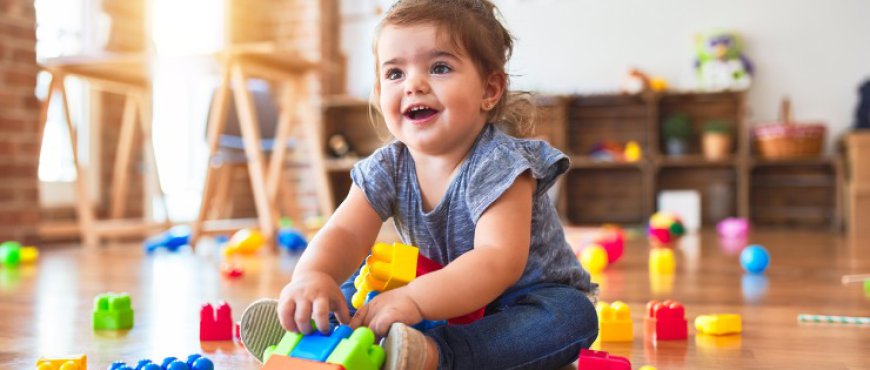Playtime Wonders: Unleashing Baby's Potential with Toys

Playtime is a magical and crucial part of a baby’s development. It’s during these moments of exploration and fun that babies learn about the world around them, discover their own abilities, and begin to develop the skills they’ll use throughout their lives. When parents buy toys for baby, they are providing essential tools in this journey, offering a range of benefits from enhancing motor skills to fostering social and emotional growth. In this article, we'll explore how different types of toys can unleash a baby’s potential and the wonders they bring to playtime.
The Importance of Play in Early Childhood
Play is not just about entertainment; it's a fundamental aspect of a child's growth. Through play, babies learn to interact with their environment, develop cognitive and motor skills, and build emotional resilience. It allows them to experiment with cause and effect, practice problem-solving, and understand the concept of sharing and cooperation.
Motor Skills Development
Fine Motor Skills
Toys like building blocks, stacking rings, and shape sorters are excellent for developing fine motor skills. These toys require babies to use their fingers and hands to manipulate objects, improving their dexterity and hand-eye coordination. As they pick up, stack, and sort these toys, they strengthen the small muscles in their hands and fingers, which are essential for tasks like writing and buttoning clothes later on.
Gross Motor Skills
For gross motor skills, larger toys such as push-and-pull toys, ride-on toys, and activity gyms are perfect. These toys encourage babies to use their whole body, promoting crawling, standing, and eventually walking. They help build strength and coordination in the larger muscles of the arms, legs, and torso. Engaging with these toys can turn playtime into a mini workout session, aiding in physical development.
Cognitive Development
Problem-Solving and Logical Thinking
Puzzle toys, nesting cups, and cause-and-effect toys are excellent for cognitive development. They challenge babies to think critically, solve problems, and understand sequences and patterns. For example, a shape sorter toy requires a baby to match shapes with the correct holes, fostering problem-solving skills and spatial awareness.
Sensory Exploration
Toys that stimulate the senses, such as textured balls, musical instruments, and sensory boards, are vital for sensory development. These toys introduce babies to different textures, sounds, and visual stimuli, helping them understand and interpret sensory information. This sensory play is crucial for brain development and helps babies learn about their surroundings in a multi-dimensional way.
Social and Emotional Development
Role-Playing and Imitation
Dolls, stuffed animals, and pretend play sets are fantastic for social and emotional development. They allow babies to engage in role-playing, which is essential for understanding social roles and relationships. Through pretend play, babies imitate the world around them, learning empathy, nurturing skills, and social cues. For instance, feeding a doll or taking a stuffed animal for a walk can help babies practice caregiving behaviors and understand routines.
Building Relationships
Interactive toys, such as those that involve taking turns or playing with others, help babies develop social skills. Simple games like peek-a-boo or playing with a toy phone can encourage babies to communicate and interact with others. These interactions are foundational for building relationships and understanding social dynamics.
Encouraging Creativity and Imagination
Open-Ended Toys
Open-ended toys, like building blocks, art supplies, and playdough, are excellent for fostering creativity and imagination. These toys have no specific purpose, allowing babies to use them in a variety of ways. This freedom encourages imaginative play, where babies can create their own stories, build unique structures, and explore their creativity without limitations.
Artistic Expression
Toys that promote artistic expression, such as crayons, finger paints, and musical instruments, allow babies to explore their artistic side. These toys not only provide a creative outlet but also help develop fine motor skills and hand-eye coordination. Through art and music, babies can express their emotions and ideas in a non-verbal way, fostering emotional intelligence and creative thinking.
Selecting the Right Toys
When selecting toys for your baby, consider their age, interests, and developmental stage. Choose toys that are safe, durable, and appropriate for their developmental level. It's also important to provide a variety of toys to encourage different types of play and learning. Rotate toys regularly to keep playtime fresh and exciting, and always supervise your baby to ensure safe play.
Conclusion
Toys are not just playthings; they are powerful tools that can unleash a baby’s potential. Through play, babies develop essential motor, cognitive, social, and emotional skills. By carefully selecting toys that promote development and encourage exploration, parents can create a rich and stimulating environment that supports their baby's growth. Playtime is a wonderland of learning and discovery, where every toy becomes a stepping stone in the journey of development. So, let’s embrace the magic of play and unlock the limitless potential within every baby.
Incorporating a variety of toys and engaging in regular playtime can make a significant difference in a baby's development. From the first smile to the first steps, every moment of play is an opportunity to learn, grow, and thrive. Let’s celebrate the wonders of playtime and the incredible potential it holds for our little ones.
